Here’s Everything You Need To Know About Dental Implants: Ultimate Guide to a Radiant Smile
Advertisement

Approximately 125 million Americans and millions more people worldwide are missing at least one tooth. Over 30 million Americans are living life without any teeth at all.
Do you ever dream of having a Hollywood-worthy, perfectly aligned set of teeth? Or perhaps you find yourself feeling self-conscious about the shape of your face due to missing teeth?
But don't worry, in this comprehensive guide, we've got the perfect solution for your dental worries: dental implants.
From dental implants' longevity and the procedures involved to the list of amazing advantages they bring to the table, this comprehensive guide covers everything you need to know about dental implants. This ultimate guide covers everything from the procedure itself to post-implant care and maintenance, and help you restore your smile and win your confidence back. So, keep reading to discover all there is to know about dental implants and transform your dental health for the better!
Advertisement
1. What Are Dental Implants?
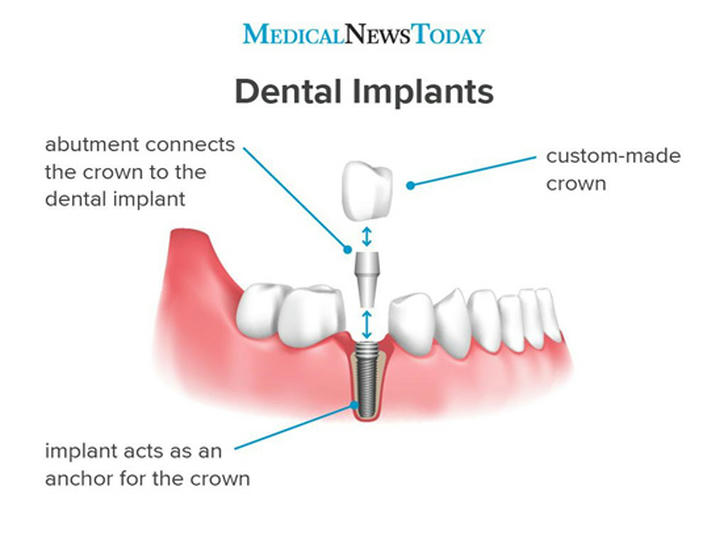
In simple terms, dental implants are like artificial roots for your teeth. They're made from safe materials like titanium and are placed into your jawbone through surgery. These implants become a strong base for replacement teeth or dental prosthetics.
The great thing about dental implants is that they look, feel, and work just like real teeth. Unlike old-fashioned dentures or bridges, implants actually bond with your jawbone, giving you a secure and long-lasting solution. This bonding process also keeps your bone healthy and maintains the shape of your face.
In a nutshell, dental implants are a fantastic way to replace missing teeth. They blend in seamlessly with your natural smile and provide stability that other options can't match. With implants, you can enjoy a confident, healthy, and lasting set of teeth.
Advertisement
2. How many stages are there in an implant?
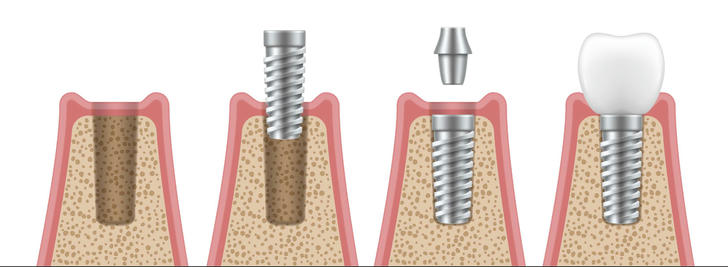
Dental implantation involves a series of procedures, including an initial consultation, surgery, and post-operative care. There are certain stages that every dental implant patient will experience:
• Consultation: You'll meet with your dentist or oral surgeon to discuss your needs and evaluate your oral health.
• Treatment Planning: A personalized plan is created based on your assessment, considering the number of implants needed and the type of restoration required.
• Dental Implant Placement: During the dental implant procedure, the oral surgeon or periodontist first exposes the jawbone by making small incisions in the gums. They then use specialized instruments to create holes in the bone. Next, the implant, resembling a post, is carefully inserted deep into the bone, serving as the replacement tooth's root.
• Osseointegration: Over a few months, the implants fuse with the jawbone, creating a strong foundation.
• Restorative Phase: An abutment, a connector, is attached to the implant, and a custom-made dental restoration (crown, bridge, or denture) is secured to it.
• Post-Operative Care: After the dental implant procedure, pain medications and antibiotics are typically prescribed for post-operative care. Follow the dentist's instructions for pain management, oral hygiene, and attend follow-up appointments.
It's worth noting that each person is likely to have a different experience of dental implant surgery
Advertisement
3. Longevity of Dental Implants – How long do dental implants last

Dental implants are incredibly durable and can last a long time. Once they're fully bonded, dental implants are meant to stay in your mouth permanently, just like natural teeth.
Although the implants themselves last a lifetime, the crown (the visible part) may need replacement eventually due to wear and tear. On average, the crown may last 15 to 20 years before needing a new one, which is far longer than most alternatives
Here are some factors that can affect how long they stay in good condition, and even can cause implant failure to occur:
• Taking care of your oral hygiene
• Quality of your jawbone
• Lifestyle choices
• Bite force and grinding
• Overall health
Regular dental check-ups are crucial for maintaining the longevity of your dental implants. By practicing good oral hygiene, being mindful of lifestyle choices, and seeking regular dental care, you can help ensure your dental implants last for many years, giving you a confident and functional smile.
Advertisement
4. How Painful is Dental Implant Surgery
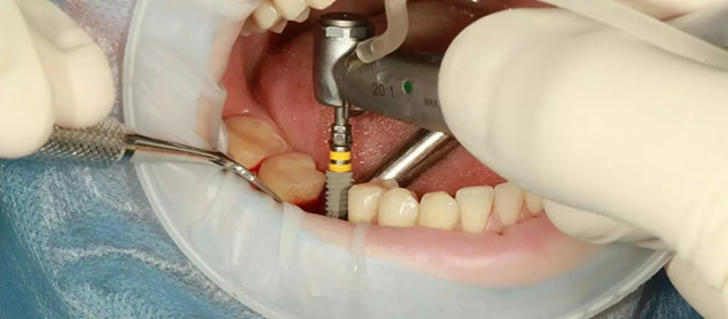
One common concern when it comes to dental implantation is the fear of pain and discomfort.
According to most patients, undergoing dental implants is generally less painful than a routine tooth extraction, as the procedure is typically performed under ample local anesthesia, ensuring that you won't feel any pain during the surgery itself you won’t feel a thing until it’s all over
While some individuals may experience mild pain after the surgery, this can be minimized with a proper implant fitting and taking necessary precautions to avoid infections. In fact, for most patients, the recovery process isn't nearly as bad as they might expect.
However, it's important to know that some dentists may also offer sedation options to help you relax during the procedure if needed. Let's address these concerns and talk about how discomfort is managed:
To further ease any discomfort and promote healing, your dentist may suggest the following:
• Apply ice packs to reduce swelling.
• Stick to a soft diet to avoid irritating the area.
• Follow proper oral hygiene practices, such as gentle brushing and using a prescribed mouthwash.
• Avoid strenuous activities, smoking, and drinking through a straw as instructed by your dentist.
Remember, any discomfort is temporary and should improve as you heal. If you have any concerns about pain management, don't hesitate to discuss them with your dentist. They will provide personalized guidance to ensure your comfort throughout the dental implant process.
Advertisement
5. Am I the best candidate for dental implants? Is there an Age Limit for Placing Dental Implants?

Good news: dental implants are a viable option for almost anyone healthy enough for routine oral surgery – so there isn't a specific age cutoff for dental implants. However, the key to a successful implantation lies in having healthy bone and gums.
Having healthy bone and gums ensures the best chances of success for dental implants. The jawbone provides a sturdy foundation for the implants and minimizing the risk of complications like infection.
While most adults have sufficient jawbone density, long-term tooth loss or certain diseases can lead to reduced bone density.
If you find yourself with decreased jawbone density, don't worry just yet! Modern dental technology and techniques, such as bone grafting, can help improve bone volume and make dental implants feasible for you.
Here are some factors that might exclude someone from being an ideal candidate for dental implants:
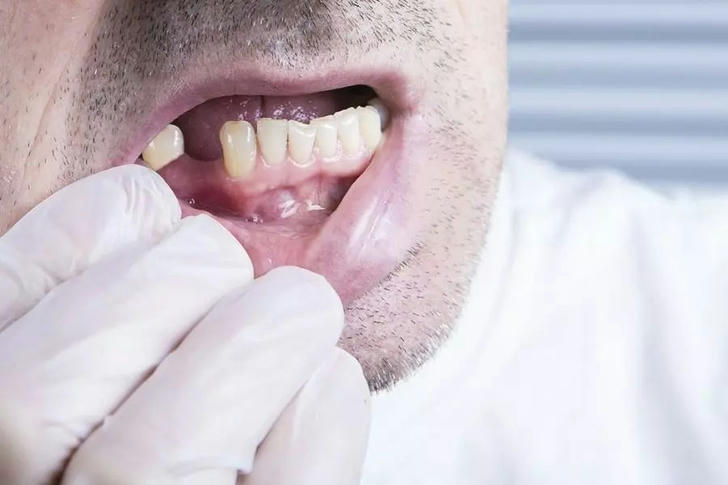
• Insufficient Jawbone Density: Dental implants need a strong and healthy jawbone to provide a stable foundation. If a person's jawbone lacks adequate density or has deteriorated significantly, it may not be able to support the implants. In such cases, bone grafting or other procedures may be necessary to improve bone volume.
• Uncontrolled Medical Conditions: Certain medical conditions, such as uncontrolled diabetes, autoimmune disorders, and significant immune system compromises, may hinder the healing process and increase the risk of complications after dental implant surgery.
• Active Gum Disease: Untreated gum disease can lead to infection and affect the success of dental implants. It's essential to have healthy gums before undergoing the procedure.
• Tobacco Use: Smoking and using other tobacco products can impair the healing process and increase the risk of implant failure. Dentists often recommend quitting smoking before getting dental implants.
• Age and Growth Considerations: Dental implants are generally suitable for adults who have completed their growth and development. Teenagers and young individuals may need to wait until their jawbone has fully developed before considering implants.
• Unrealistic Expectations: It's crucial for potential candidates to have realistic expectations about the outcomes of dental implant surgery. Dental implants are an excellent solution, but they may not be identical to natural teeth in every aspect.
If you are unsure about your candidacy for dental implants, consult with a qualified dentist or oral surgeon. They will thoroughly evaluate your oral health, medical history, and unique circumstances to determine if dental implants are the right choice for you. Remember that there may be alternative tooth replacement options available if dental implants are not suitable for your specific situation.
Advertisement
6. How long does the dental implant process take?
The dental implant process consists of three main phases, and the timeline for each phase can vary for different individuals. On average, the entire process takes approximately 3 to 8 months to complete.
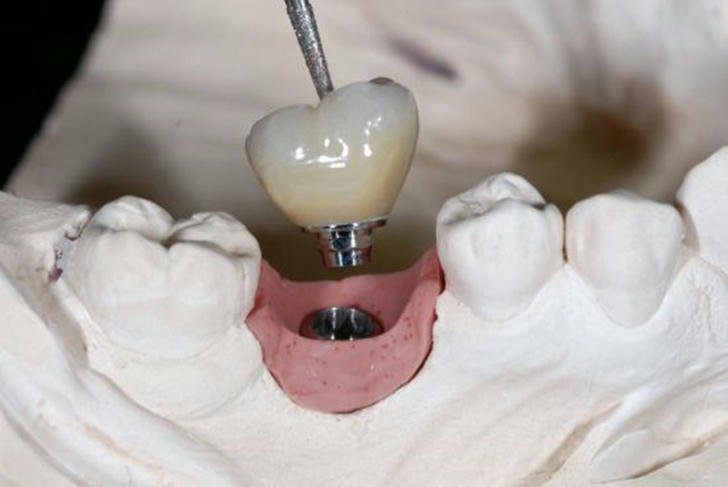
Phase 1: Consultation and Planning
The journey begins with an initial consultation with your dentist, where they assess your oral health, discuss your treatment goals, and determine if dental implants are suitable for you. This phase typically takes a few hours.
Phase 2: Implant Placement and Healing
The second phase involves the surgical placement of the dental implants into your jawbone. This procedure is done under anesthesia to ensure your comfort. After the implants are in place, a healing period of about 3 to 6 months is necessary for osseointegration, where the implants fuse with the jawbone. This crucial stage provides a solid foundation for the artificial teeth.
Phase 3: Abutment and Restoration
In the final phase, the abutments, which are connector pieces, are attached to the implants.
This minor procedure is relatively quick, usually completed in one visit and takes about 30 minutes to an hour. The more implants you have fitted, the longer the surgery will take. Once the abutments are in place, the artificial teeth or dental crowns are customized and fitted onto the abutments. This step ensures a natural and aesthetically pleasing result.
In conclusion: It's important to note that the timeline may vary depending on individual factors, such as the need for additional procedures like bone grafting or the complexity of the case. Your dentist will provide you with a personalized timeline based on your specific situation.
Advertisement
7. The Advantages and Disadvantages of Dental Implants

Why are dental implants better than other options? Advantages of dental implants:
Improved Aesthetics: Dental implants look and feel like natural teeth, enhancing your smile and boosting your self-confidence.
Enhanced Function: Unlike removable dentures, dental implants provide a strong and stable foundation for chewing and speaking, allowing you to enjoy your favorite foods without restrictions.
Preservation of Adjacent Teeth: Dental implants don't rely on neighboring teeth for support, preserving the integrity of surrounding healthy teeth.
Long-Lasting Solution: With proper care, dental implants can last a lifetime, making them a durable and cost-effective tooth replacement option.
Protection of Surrounding Bone and Gums: Dental implants stimulate the jawbone, preventing bone loss and maintaining facial structure and integrity.
Improved Quality of Life: Dental implants restore natural chewing function and smile aesthetics, leading to an overall enhanced quality of life and increased self-assurance.
Disadvantages and Limitations of Dental Implants:
Surgical Procedure: Dental implant surgery involves a minor surgical procedure, which may lead to some discomfort or swelling during the healing process.
Healing Time: The process of osseointegration, where the implant fuses with the jawbone, requires several months of healing before the final restoration can be placed.
Cost: Dental implants can be more expensive upfront compared to other tooth replacement options, though their long-term benefits may outweigh the initial investment.
Requires Good Oral Hygiene: Proper oral care is crucial to the success of dental implants. Neglecting oral hygiene can lead to implant failure and other dental issues.
Potential Complications: Like any surgical procedure, dental implantation carries a slight risk of complications, such as infection or nerve damage. However, these risks are relatively low and can be minimized with proper care and an experienced dentist.
It's essential to discuss your specific situation with your dentist to determine if dental implants are the right option for you. While there may be some limitations and considerations, the advantages of dental implants in terms of aesthetics, function, and oral health make them a highly sought-after and successful tooth replacement solution.
Advertisement
8. How Much Do Dental Implants Cost? A Price Breakdown
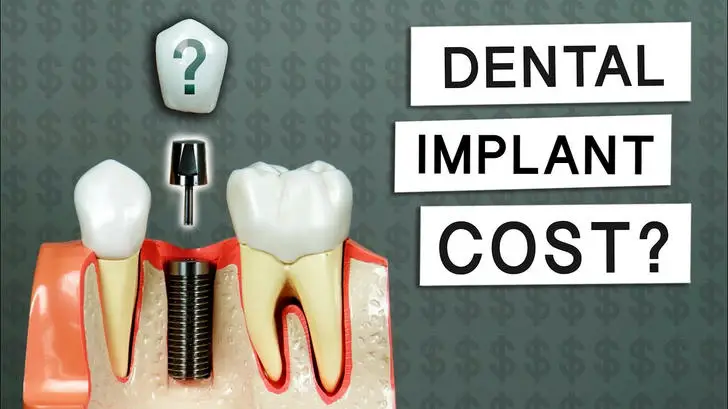
The Cost of a Single Tooth Implant
When getting dental implants, it's important to think about everything involved. While you might be focused on just one tooth, the total cost includes several parts to ensure a successful and lasting outcome.
In addition to the implant itself, other elements contribute to the overall cost, such as the abutment and dental crown. Furthermore, factors like bone grafting, if required, will be factored into the total cost.
According to the American Dental Association’s Health Policy Institute, the average cost of a dental implant for a single tooth ranges from $275 to $450, but it is largely dependent on the amount of customization that’s needed. Also, the crown is the most expensive part and can cost between $1,000 to $3,000. So the total average cost can range from $3,000 to $5,800.
The Cost of a Multiple Tooth Implant
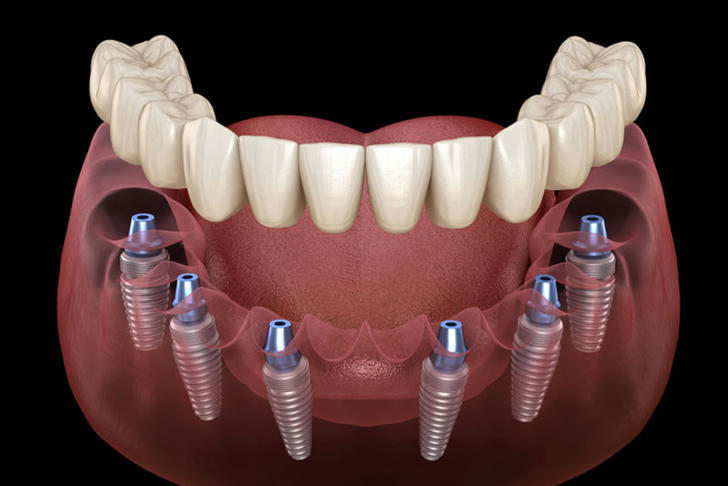
Due to various approaches to full-mouth tooth replacement, the pricing can vary significantly.
Opting for individual tooth replacement is the most expensive choice but offers the highest comfort and the potential to preserve existing healthy teeth. This method typically ranges from $60,000 to $90,000.
A more affordable option is implant-supported dentures, where false teeth replace the natural upper and lower teeth using four to six implants in each jaw. Known as All-on-4, this option usually costs between $24,000 to $50,000 for a complete set after removing any remaining teeth.
Does Insurance Cover Dental Implants?
In the past, dental insurers considered implants as "elective," and they didn't cover associated costs. However, the situation is changing, and coverage is improving over time. Dental insurance now typically pays a portion of the total implant cost, with the reimbursement percentage varying by procedure. There might be annual or lifetime caps on reimbursement for specific treatments.
If you have dental insurance, you can expect around $1,500 per implant, per year, to be reimbursed. If your implant procedure spans multiple calendar years, you may receive reimbursement for both years.
Flexible spending accounts (FSAs), health reimbursement accounts (HRAs), and health savings accounts (HSAs) can cover dental implant expenses. These accounts work similarly, either paying for or reimbursing incurred costs, including the difference between insurance coverage and out-of-pocket expenses.
It's essential to check with your insurance provider or administrator beforehand to understand the costs for which you'll be responsible.
Advertisement



